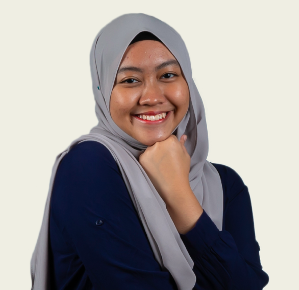Why Malay Studies?
Established in 1967, the NUS Department of Malay Studies stands as a beacon of intellectual excellence, fostering a deep understanding of issues relevant to the globalized Malay World.
Our distinctive problem-centric, multidisciplinary approach integrates theories and concepts from Western, Asian, and other intellectual traditions. This unique methodology sets us apart and drives our commitment to rigorous research and academic excellence.
We pride ourselves on maintaining strong connections with the local community through policy studies, public intellectual engagement, and social service. Our research spans a wide range, from exploring rich traditions to examining the broader Muslim and Asian contexts of cross-border interactions and interconnections.
Join us in discovering the intricate tapestry of the Malay World and its significant global impact.


Curriculum
Single Major [B.A. (Hons)]
To major in Malay Studies, students need to meet the following requirements:
Pass at least 60 Units of MS courses which include the following:
- MS1102E Understanding the Contemporary Malay World.
- MS4101 Theory and Practice in Malay Studies
- A minimum of 16 Units at level-3000
- A minimum of 20 Units at level-4000 or higher.
Second Major
Pass at least 40 Units of MS courses, which include the following:
- MS1102E Understanding the Contemporary Malay World.
- MS4101 Theory and Practice in Malay Studies
- A minimum of 16 Units at level-3000 or higher
Minor in Malay Studies
Accumulate at least 20 Units of MS-prefixed courses, which include the following:
- MS1102E Understanding the Contemporary Malay World.
- A minimum of 4 Units at level-3000 and above.
Admissions
There is no Malay Language requirement for taking up Malay Studies at level 1000 or as elective at any level as the majority of the courses offered in the Department are taught in English.
(Note: please check list of courses for the medium of instruction).
A candidate who proposes to major in Malay Studies should fulfill one of the following pre-requisites:
A pass in Higher Malay at the GCE 'O' Level Examination; OR
A H1 pass in Malay Language; OR
A H2/H3 pass in Malay Language and Literature at GCE 'A' Level Examination; OR
A pass in LAM1201 Malay 1 (offered by the Centre for Language Studies at FASS) for students without prior knowledge in Malay.
Job Ready
Malay Studies adopts a multidisciplinary and comparative approach to covering broad issues of Malay society and Southeast Asia in general. Graduates of Malay Studies are well-equipped to avail themselves of the various career opportunities open to graduates from other disciplines of the social sciences and humanities.
Students of Malay Studies enjoy particular advantage in careers requiring an intimate and in-depth understanding of the Malay/Muslim world of Southeast Asia, covering Indonesia, Malaysia, Brunei and Singapore, be it in the private or public sector. They are also equipped with the knowledge to appreciate the dynamics of Muslim societies beyond the region.
Graduates of Malay Studies go on to be leaders beyond the Malay community; taking up posts in the public and private sectors. Their unique perspectives and skills allow them to reach out to our neighbours in South East Asia, building bridges and developing closer ties.
Why CHS?
The College of Humanities and Sciences (CHS) is the enhanced undergraduate experience for students of the Faculty of Arts & Social Sciences (FASS) and the Faculty of Science (FOS) at the National University of Singapore.
Scale of Impact
Taps and builds on the research expertise of two of the largest and most established faculties in Singapore.
Deliberate Curriculum Curation
A distinct interdisciplinary approach that emphasises the ability to draw connections, discover links and connect insights across disciplines.
Unparalleled Flexibility
Offers greater choice and unparalleled flexibility to pursue breadth and depth from more than 1,000 modules per academic year.
Testimonials

Nabil Naqiuddin
Malay Studies
Why major in Malay Studies?
The Malay Studies Department is the best place to be at if you have a keen interest in the Arts and Humanities. Modules are crafted such that we study the Malay world through an interdisciplinary lens, given the diverse background of our faculty members.
What has been your biggest takeaway from your classes so far?
My time in FASS has pushed me to think more critically about the world around me as i'm forced to learn new skills and knowledge that are beyond my main areas of interest. This ensures that I have a greater set of skills which I can use in the working world. I also learn to appreciate the world around me more!
Hariz Emran
Major in Malay Studies
2nd Major in Communications and New Media
Minor in Asian Studies
Malay Studies offers a wide array of critical lenses that has enabled me to be more discerning and empathetic student of the society.


Nur Hikmah
Malay Studies '22
Why major in Malay Studies?
Prior to my exposure to Malay Studies, I thought that Malay Studies at NUS was all about language and linguistics. However, I was exposed to Malay Studies through a mentorship programme under the Department of Malay Studies, which I participated in during my second year of pre-university.
In Malay Studies we take a multidisciplinary approach to understanding the 'Malay world’, whether it is at a geographical, cultural or national level. Through my modules in Malay Studies, not only do I learn more about the Malay Archipelago–which is extremely relevant given our geographical location and socio-political history–but I am exposed to multiple ways of seeing this part of the world so that I can gain a deeper understanding of Malay history, as well as Malay economics, politics and society.
What has been your biggest takeaway from your classes so far?
My biggest takeaway from my classes so far is the importance of relating what I’ve learnt in class to everyday life. I think I am privileged to be able to learn and have access to information on the Malay world, something that I am familiar with and experience every day. This enables me to give a sense of rootedness to my community and confidence that whatever I learn is very much relevant and applicable to my surrounding community.
I think it is very important that we see this connection between theory and everyday realities because this helps us become functioning undergraduates who can think and develop productive and meaningful discourse in society and identify problems in it with a mind to solving them.
Yatiman Yusof
Chairman of the Malay Language Council of Advisors
Malay Studies and Geography '72
Mr Yatiman Yusof graduated with a Bachelor of Arts degree in Geography and Malay Studies from the University of Singapore in 1972. He was awarded the 2020 Distinguished Arts and Social Sciences Alumni Award. Click here to watch video.
From 1984 to 2006, Mr Yatiman served as a Member of Parliament for the Kampong Kembangan Constituency (1984 - 1987) and Tampines Group Representation Constituency (GRC) (1988 – 2006). He was then appointed Parliamentary Secretary of the Ministry of Foreign Affairs in 1986 to 1992 and Senior Parliamentary Secretary till 1996. From 1997 to 2006, he was the Senior Parliamentary Secretary to the Ministry of Information and the Arts (renamed Ministry of Information, Communications and the Arts in 2001). He retired on 30 May 2006. From 2009 to 2015, he was Non-Resident High Commissioner of Singapore to Rwanda.
Mr Yatiman is currently a board member of the Singapore Press Holdings Foundation and Non-Resident High Commissioner of Singapore to Kenya. He is also Chairman of the Malay Language Council of Advisors, Programme Advisor of the Department of Malay Studies at the Singapore University of Social Sciences, as well as Board Member of Bright Vision Hospital.

The Faculty of Arts and Social Sciences, National University of Singapore (NUS) is committed to environmental sustainability.
This e-brochure is part of our sustained effort to reduce waste and foster a culture of care for the environment among the NUS and broader community.

